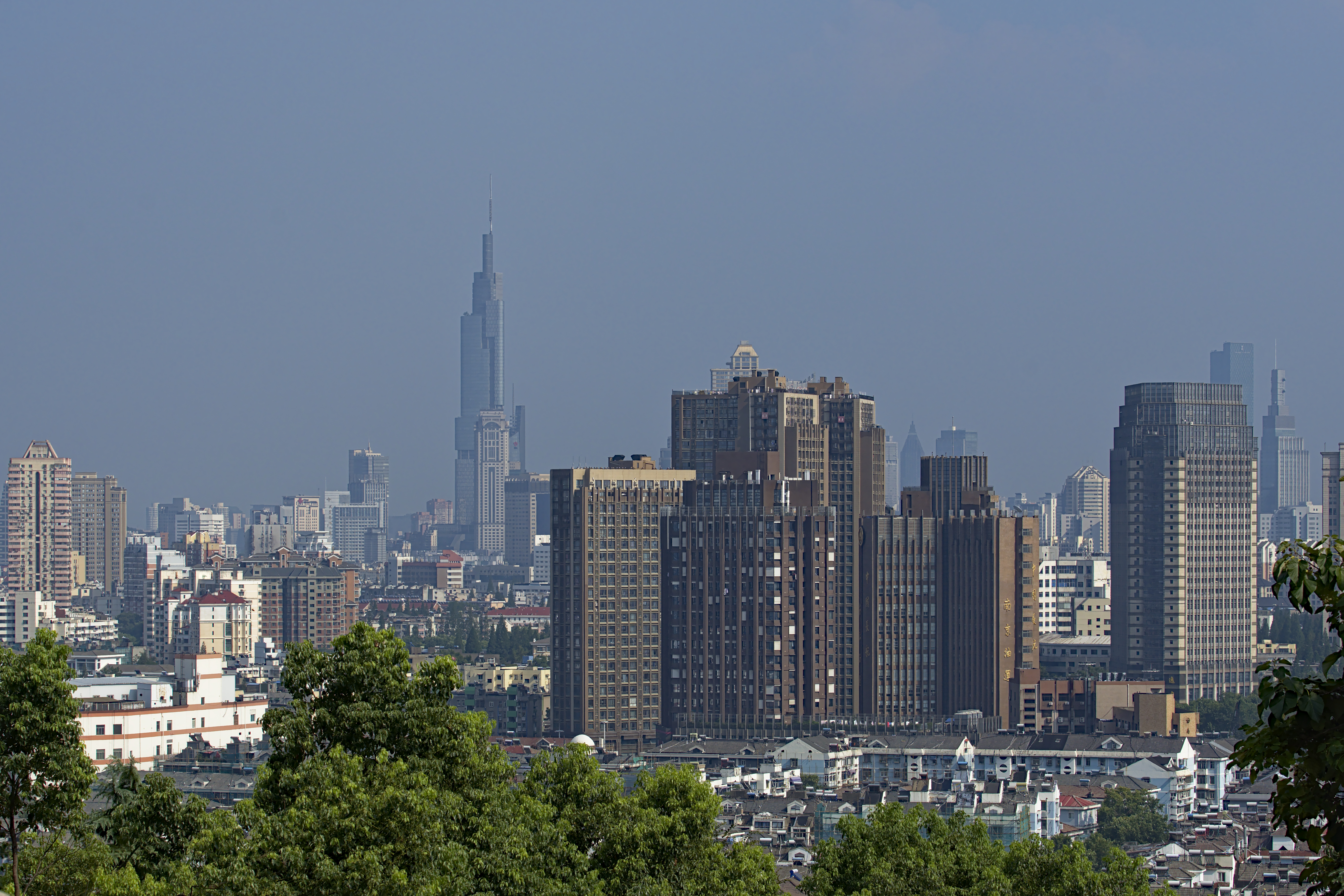A New Dimension to China’s Tech Crackdown?
Lawfare’s biweekly roundup of U.S.-China technology policy and national security news.

Published by The Lawfare Institute
in Cooperation With

With Chinese tech stocks and markets down since Chinese regulators’ removal of ride-sharing service Didi from its app stores, commentators are now grappling with the motivations and implications of the crackdown.
Some believe it is driven by a desire to control data, which Chinese President Xi Jinping has referred to as an “essential and strategic resource.”
Others believe the tech crackdown is part of a broad pivot away from internet-based services and platform economies, and a move toward manufacturing as the primary driver of the Chinese economy. Stephen Roach recently argued that security is the main motivator for Chinese tech policy, and self-sufficiency in hard tech is one facet of that security. Chen Li, chief strategy officer of Soochow Securities, commented that China has decided to abandon the “U.S. road” to growth—that is, the Silicon Valley-fueled tech boom—and instead has opted for the “German road,” leaning heavily on manufacturing. In this view, Xi has decided that soft tech (social media, e-commerce) is “nice to have,” while hard tech (semiconductors, batteries) is “need to have.”
Still others have stressed a new dimension to the crackdown: the class-based and demographic aims that it may serve. Chang Che and Jeremy Goldkorn of SupChina delineate three categories of China’s new tech-related regulations: antitrust measures, data protection and “a check on capitalist ‘excess.’” The last is an outgrowth of Beijing’s December 2020 acknowledgment of the “disorderly expansion of capital” in China.
At least part of the crackdown appears to be aimed at improving the quality of life of the Chinese working and middle classes. In particular, several analysts have referenced public backlash against overwork, an epidemic epitomized by the “996” culture in China’s biggest tech companies: working 9 am to 9 pm, six days a week. A phrase going viral on Chinese social media is “tangping,” or “lying flat,” relaxation as rebellion against overwork. Recent regulations of “ed tech”—the private tutoring industry—are intended to lower stresses and costs for kids and parents who feel compelled to enter the rat race. Taisu Zhang, professor at Yale Law School, posits that the educational rat race is the “single biggest source of anxiety in the Chinese society.” Policymakers, Zhang says, are working to ameliorate that angst. They also hope to incentivize parents to take advantage of the relaxation of the one-child policy, which was expanded in May to allow families to have up to three children.
One observer has dubbed this phenomenon “progressive authoritarianism,” citing as evidence the “new development phase” this year that prioritizes “common prosperity” and “stability, which means tamping down discontent among China’s middle class.” Business sectors that increase costs and/or lower wages for ordinary Chinese citizens are especially likely targets for further regulation. Meituan, the food delivery service, has been ordered to raise wages for its workers. (Since then, it has lost more than $60 billion in market value.) Others see “family values” in the crackdown, particularly after a recent Xinhua article called video games “spiritual opium”—a comparison with special historical significance in China.
On Aug. 6, the former chief of Hong Kong Exchanges and Clearing, Charles Li, said that Chinese tech companies will have to adjust to the breakneck pace of reforms. Dennis Lam of DBS, a major Asian bank, has predicted that sectors tied to social and economic issues, including education, e-commerce, and health care, will experience further regulation.
China’s COVID-19 Response Tested as Delta Variant Spreads
The global spread of the Delta variant is testing the long-term sustainability of China’s strict “zero Covid” strategy and is sparking new debate over the origins of the coronavirus and the efficacy of Chinese vaccines. Guangdong was the first Chinese province known to be hit by the Delta variant, but Delta has since been found in more than half of China’s provinces. A particularly large outbreak in the city of Nanjing began when Chinese workers were cleaning a plane that had unknowingly carried a Delta-infected passenger from Russia.
China has reimposed some of its strictest policies in cities and regions with Delta outbreaks, including lockdowns, travel restrictions, mass testing and extensive contact tracing. But some commentators see “diminishing returns” given the costliness of these policies, positing instead that China would be better off shifting from its zero-tolerance strategy to one of mitigation. Mitigation strategies aim to minimize hospitalizations rather than the overall number of infections. The policies include shifting to more localized lockdowns and prioritized restrictions, which may close restaurants while allowing schools to remain open. However, China has previously criticized these measures as weak and ineffective when used by Western governments; thus, the government’s current shift could create a thorny public relations problem for the Chinese Communist Party.
As the Delta variant refocuses the world’s attention on the lingering threat of the coronavirus, China is still recovering from the image problems created by the Wuhan lab leak theory. China has doubled down on its alternative theory that the virus originated in the U.S. and was brought to China by members of the U.S. military. An open letter calling on the World Health Organization to investigate the United States’ Fort Detrick lab published by China’s state-run Global Times has garnered 25 million signatures. China’s Foreign Ministry press secretary, Zhao Lijian, reiterated these calls in a news conference on July 30.
Meanwhile, the U.S. intelligence community is pressing ahead on President Biden’s order to investigate the Wuhan lab leak theory, although “smoking gun” evidence is unlikely to be found.
In countries that opted for a Chinese-developed vaccine, questions are also being asked about the efficacy of Chinese vaccines against the Delta variant. Currently, the detailed data necessary for foreign scientists to conduct peer-reviewed studies of Chinese vaccine efficacy have not yet been made available. Chinese researchers have told reporters that their vaccines are “somewhat effective” in reducing the risk of severe cases of COVID-19 caused by the Delta variant. China’s state-run media has declared that Chinese vaccine producers will soon progress to clinical trials of new vaccines modified specifically for the Delta variant, but other experts have expressed skepticism.
Outside of China, countries including Brazil, the United Arab Emirates and Indonesia have relied on Chinese-made vaccines as a significant component of their vaccination strategies.
Other News
Tencent Facing Lawsuits for Children’s Protection Failures
Tencent was hit with two civil lawsuits this week over its failure to protect Chinese minors from online harms. The lawsuits were filed shortly after an updated version of China’s minors protection law went into effect on July 27. The first lawsuit, filed by a Chinese children’s rights organization, alleges that Tencent’s popular “Honor of Kings” video game violates minors’ rights by encouraging addiction to the game, showing inappropriate content and misrepresenting Chinese history.
The claims were brought by the Beijing Children’s Legal Aid and Research Center (BCLARC), China’s first children’s rights group. Founded in 1999, BCLARC consists of a group of lawyers who were also involved in the drafting and recent revision of China’s minors protection law. BCLARC has said that its lawsuit represents the first civil public interest suit regarding the protection of minors filed by a public interest group.
“Honor of Kings” was the first game in the world to average more than 100 million daily users. Although Tencent enforces a real-name policy in the game and limits access of users under age 18, many children have found clever workarounds to circumvent anti-addiction policies. Commentators speculate that, if successful, the lawsuit would have “a huge impact on Tencent’s top-grossing game and it may even impact the company’s shares.”
The second lawsuit was filed by Beijing prosecutors, alleging that social media app WeChat’s “youth mode” does not comply with the newly amended minors protection law. The youth mode bars users under age 18 from accessing certain features, including some games and functions like payments or finding nearby friends. The filing does not specify how the youth mode failed to comply with the law, but prosecutors invited other agencies and organizations to join the suit. Some commentators have connected this suit to China’s broader crackdown on the country’s tech giants.
In comments on its social media accounts, WeChat promised it would conduct a “self-examination of the functions of WeChat Youth Mode” and “sincerely respond” to the litigation.
Crackdown Hits Real Estate
As of Aug. 6, S&P Global, Moody’s and Fitch’s have all downgraded the rating of China Evergrande Group, signaling an escalating risk of default by one of China’s largest and most indebted property developers. Onlookers perceive a risk of a “vicious cycle” of decreased liquidity and lender wariness.
As in the tech crackdown, inequity and anxiety appear to be playing a role. Significant social discontent and economic inequality stem from speculation in Chinese real estate. Now, penalties for misconduct have increased, and developers have been ordered to deleverage. In August 2020, Beijing created new metrics (the “three red lines”) by which to monitor developers’ debt. The developer regulations recall the actions taken against Ant Group, the colossal payment platform, whose high debt-to-capital ratio and facilitation of growing consumer debt were perceived by Beijing as posing systemic financial risks.
The difference here is that, unlike the tech sector, many of the biggest developers in China have had the implicit backing of the government. Now, defaults are spreading in the industry. Some observers see evidence of growing unwillingness in Beijing to prop up state-owned developers, and yields on junk bonds have suggested investor concerns about defaults for months. Allowing defaults could affect Chinese banks, which have trillions of dollars of outstanding loans to real estate companies.
New Chinese Ambassador Arrives in United States
Qin Gang, the new Chinese ambassador to the United States, arrived in Washington on July 28. A former chief of protocol and head of the Foreign Ministry’s information office, Qin has not previously focused on dealing with the United States; his appointment suggests the elevation of those closest to President Xi and most loyal to the party line. Kurt Campbell, the White House’s foremost Asia expert, remarked in June that China’s top foreign policy representatives, Wang Yi and Yang Jiechi, are not part of Xi’s shrinking inner circle. Commentators speculate that Qin’s background in “upholding the dignity and equal treatment of Chinese senior leaders” signals his intent to promote China’s status as a great power in his relations with the United States.
Qin’s first messages were relatively cordial, stressing communication and cooperation between the two countries. At a press conference on July 28, Qin signaled his intention to “get bilateral relations back on track.” He said: “I firmly believe that the door of U.S.-China relations, which is already open, cannot and should not be closed.” He also rejected the labels of “hard” versus “soft” diplomacy.
Observers are still waiting to see whether Qin adopts a harder line. Qin’s reputation is that of a seasoned diplomat who refuses to engage in the Twitter politics of “wolf warriors.” He is not expected to be a “sledgehammer wolf warrior.” At the same time, Qin has a penchant for theatrics and one-liners and has sometimes taken an abrasive tone with foreign journalists.
Commentators agree that Qin’s direct access to Xi will make him an important player in shaping the next several years of U.S.-China relations. His first key test may come as he coordinates a potential face-to-face meeting between President Biden and President Xi at the G-20 summit in October.
Commentary
Chinese Minister for Foreign Affairs Wang Yi states in a press conference China’s support and willingness to cooperate with all parties in Afghanistan as the United States withdraws its military forces.
Former Australian Prime Minister Kevin Rudd writes in Foreign Affairs on why China perceives the “Quad” (a strategic and security grouping of the United States, Australia, India and Japan) as a threat to its regional ambitions. Bilahari Kausikan, a former Singaporean diplomat, contributes an essay on Southeast Asian nations’ perceptions of China.
The Wall Street Journal Editorial Board discusses potential conflicts of interest among top U.S. coronavirus scientists in allowing lab leak theory probes.
Moody’s publishes a report on Chinese efforts toward semiconductor self-sufficiency, noting that the push is likely to expand the tech sector but runs a risk of overcapacity.
Jerome A. Cohen writes in his blog on a potentially “irreconcilable gulf” between the United States and China, and the role of criticism therein.
Bruce Shen, writing for The Diplomat, assesses Europe’s approach to policing Chinese investment.
Rep. Rick Crawford pens a letter to the Wall Street Journal arguing for restriction of federal tax credits for solar panels manufactured in China.
Fergus Hanson and Marietje Schaake discuss democracy, authoritarianism and tech regulation on an Australian Strategic Policy Institute (ASPI) webinar.
Samantha Hoffman writes for Foreign Policy on the future of data collection in China and its ramifications for companies operating there.
Jiang Yaling describes in Sixth Tone Hainan provincial authorities’ adoption of QR codes to prevent evasion of duties on imported luxury goods.
Dan Wang suggests in Foreign Affairs that U.S. trade restrictions, starting in 2018, catalyzed China’s drive toward technological self-sufficiency.






